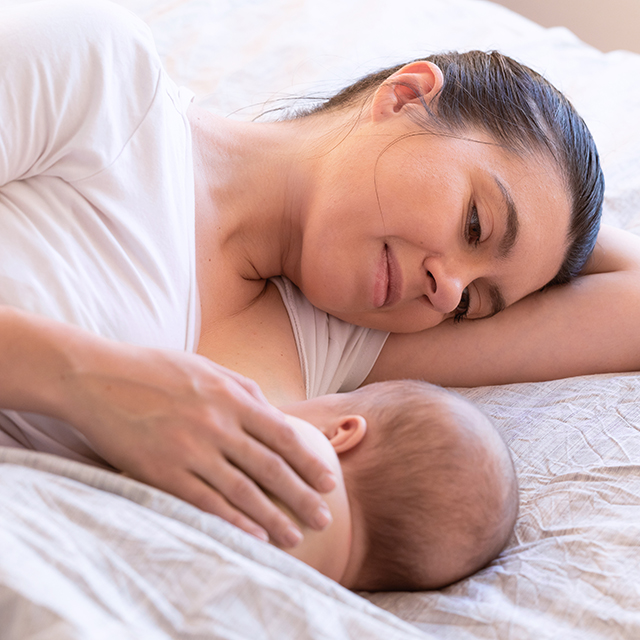Without ever seeing the mother’s face, birth companion Tatiana Gallego, M.A., M.P.A., was vital during a recent birth. Because of the COVID-19 pandemic, the two had only met over the phone, and Gallego had to rely on text messages from the mother for clues as to how the labor was going.
“I was her #1 person and she texted me throughout the labor,” says Gallego.
Being a birth companion has changed since the onset of COVID-19.
The free program is staffed by Johns Hopkins University School of Nursing students. Birth companions, also called doulas, help women before birth, during labor and after the birth with their continuous presence — which has now gone virtual. While they can’t be physically there, they still provide emotional and informational support and help women advocate for themselves.
According to Laura Lucas, D.N.P., M.S., assistant professor and faculty coordinator for the Birth Companions program, evidence shows that continuous labor support decreases the risk of needing a cesarean section. Additional health benefits include lower preterm birth rates, shorter length of labor, less use of analgesics, fewer instrumental vaginal births, improved feelings about childbirth and higher maternal satisfaction.
Over the past 21 years, more than 1,200 students have completed the Johns Hopkins University School of Nursing’s Birth Companions course and participated in the program. Birth companions have assisted in approximately 2,300 labors and births at a variety of Maryland hospitals.
“We’re still providing support,” Lucas says regarding the COVID-19 pandemic. “Students are offering to meet in any way they can. They’re texting, Skyping or using Zoom. If a mother wants to FaceTime during the birth, we’re doing that too.”
Gallego, who is a Birth Companions leader and teaching assistant for the class, says she’s amazed by women’s resilience.
“They have the ability to just adapt and change as things are happening,” she says. “If they came in with a plan and things aren’t going that way, they have amazing tenacity. It’s really a privilege to be let into these special moments in people’s lives.”
Gallego says that as a birth companion, she often feels like she’s filling in a gap in the health care system.
“We are serving a need in Baltimore,” she says. “This program serves a lot of different economic groups, and I think that everyone deserves a doula. We’re supporting the women in any way we can.”
Nursing student Laura Mangano, a birth companion who has been a part of 15 births so far, says her job is to be the intermediary between the medical professionals and the parents.
“I help the parents make hard decisions in a short amount of time,” she says. “Labor can be a very long and exhausting marathon, and having support can help the moms push to the finish line.”
For birth companion Katarina Frickleton, the most memorable birth she participated in was also quite grueling.
“I was there for 14 hours,” Frickleton says. “Due to the client’s medical history, she had a high risk of hemorrhage, and the tension in the room really increased her stress. I was able to help her with comfort measures. I stood behind her with my arms under her arms, and she was able to sway through the contractions. We also did a ton of affirmations. I was always reassuring her that she could do it. Everything wound up being OK.”
New mom Emily Mariner says the Birth Companions program helped her have a fantastic birth experience.
“It made all the difference to us,” she says. “Having someone there made it that much better. She made me calm and helped my husband feel at ease. I’m so grateful.”
Mariner says she was surprised by how attentive her birth companion was given that it is a free service.
“She put in so much effort,” says Mariner, who chose to have a water birth. “She was dedicated to making me feel calm and happy. She kept me focused. She even straddled the tub and held me up. She kept me as comfortable as she possibly could.”
For Tamara Ali, the small things her birth companion did during her labor made a big difference.
“When I got into the intense part of labor, she would ask me if I needed a drink, or encourage me to try a different position or offer me a fresh piece of gum. When I was pushing, she reached over and grabbed my hand. Something little like that was so impactful, and all the small things really added up. Her support meant so much.”
Having a strong support system during birth is critical, says birth companion Maya Robinson.
“We help remind them to do the simple things — like breathing,” Robinson says. “We want moms to feel comfortable and have positive birthing experiences.”



